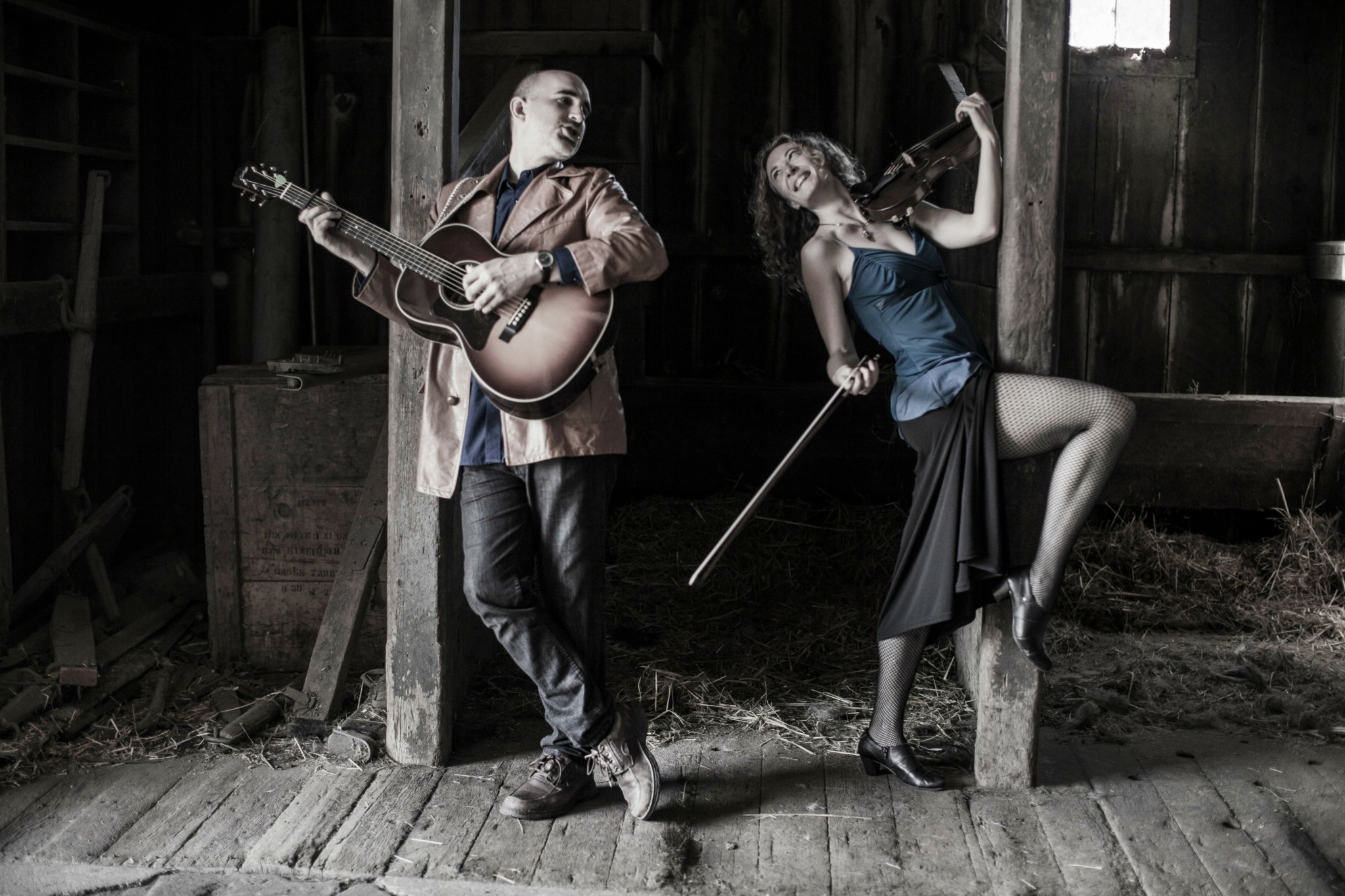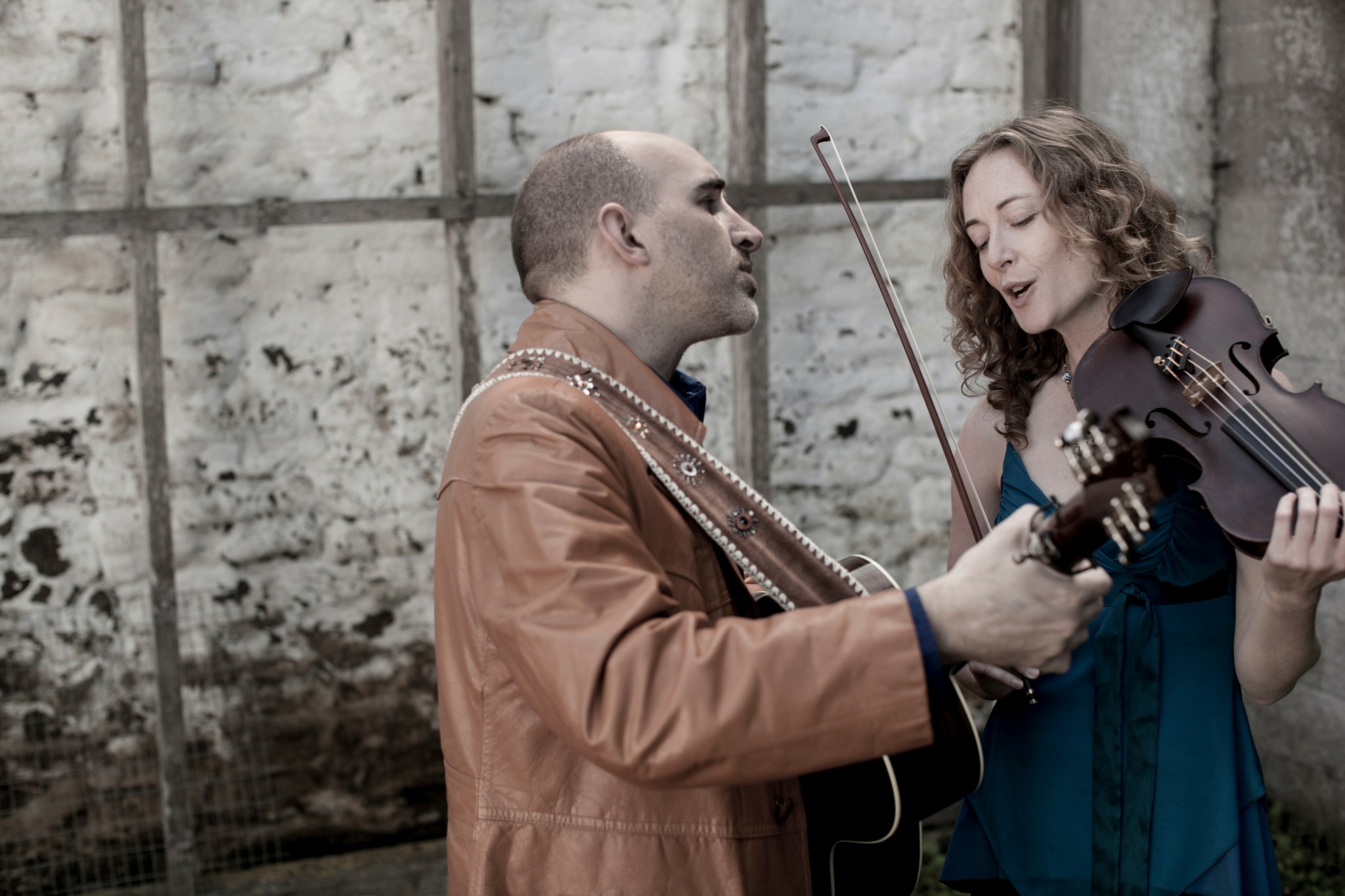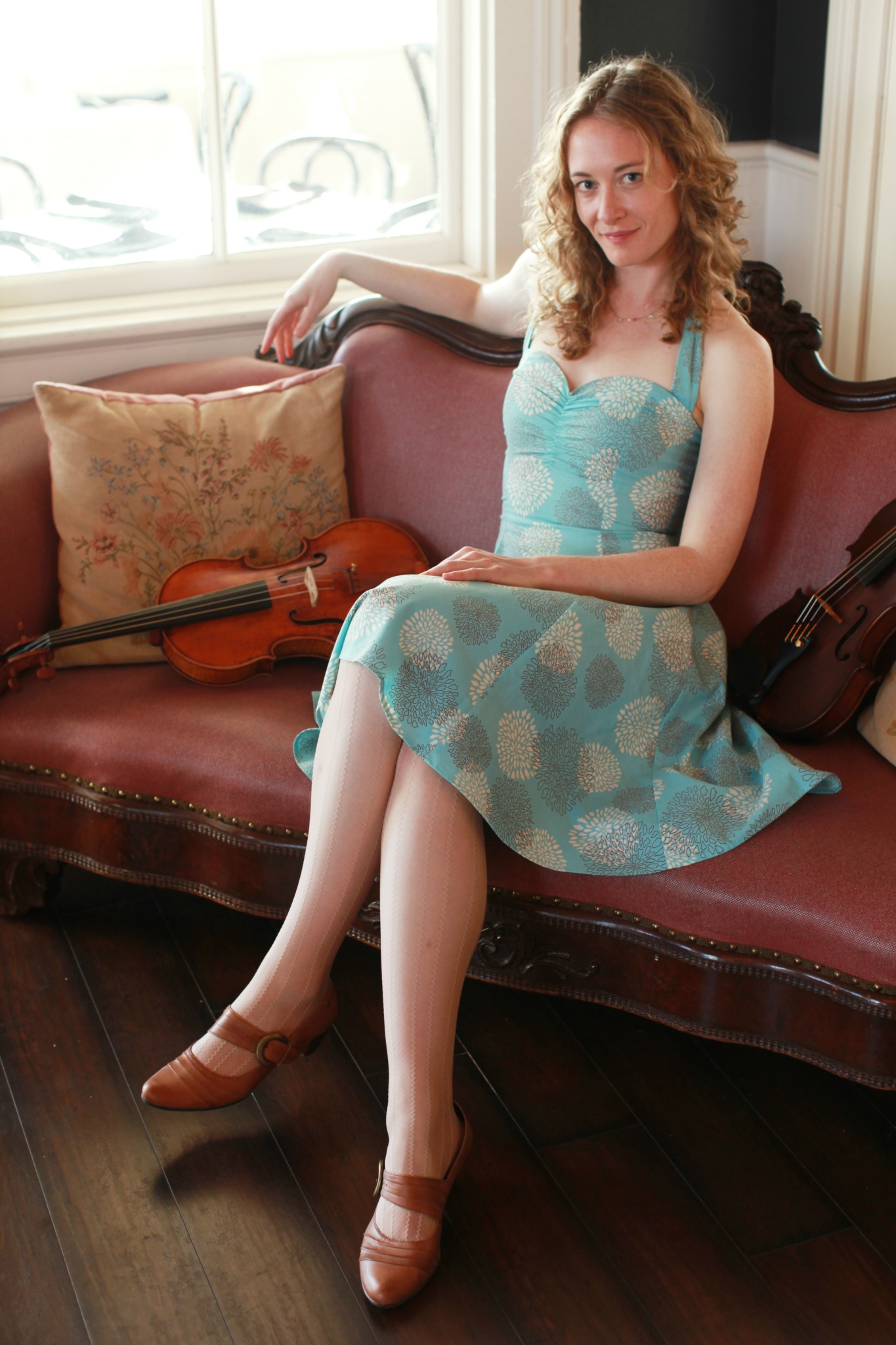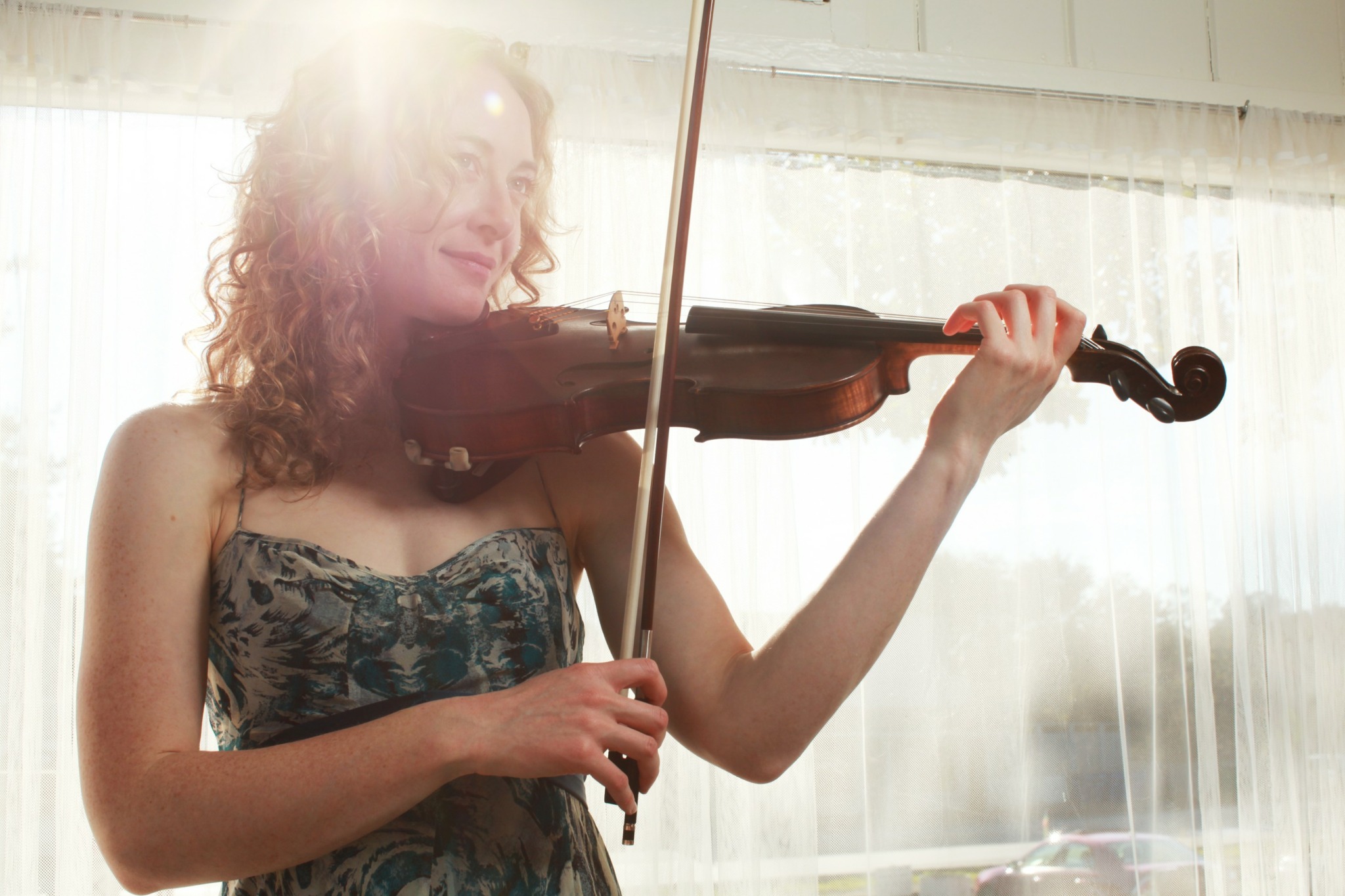We caught up with the brilliant and insightful Laurel Thomsen a few weeks ago and have shared our conversation below.
Hi Laurel , thanks for joining us today. Have you been able to earn a full-time living from your creative work? If so, can you walk us through your journey and how you made it happen? Was it like that from day one? If not, what were some of the major steps and milestones and do you think you could have sped up the process somehow knowing what you know now?
As a young teen at my uncle’s wedding reception, my mom saw an opening and pulled me over to my new aunt’s brother, Steve Seskin, a successful songwriter in Nashville. Garth Brooks had recently covered one of his songs and he was supporting himself and his family with his music, as I also hoped to do one day.
“Laurel wants to be a musician,” my mom explained, “do you have any advice for her?”
“Wear many hats,” said Steve. He went on to explain how many musicians expect to make a living doing just their favorite aspect of music, maybe songwriting, or performing. And who could blame them really? In a 9-5 job we might have a fairly narrow role and duties we carry out day to day. However, he explained how in music, every day was different for him. One day he might be performing, the next day, teaching, the next day writing an inspired song, and the next a jingle for a cat food commercial.
Hearing him rattle off all the different avenues a musical career might take felt exhilarating and crafting a future that might look different day to day sounded like a dream. I was already performing in a youth orchestra, had played a few wedding ceremonies and at a festival, and had started teaching a handful of private students. The idea of expanding the ways I could share music thrilled me.
As Steve had so wisely emphasized, to be successful in a creative career, we need to accept, be thankful for, and hopefully find a way to relish a wide palate of opportunities. Do we have to enjoy everything we do equally? Of course not. Should we say no to opportunities sometimes? Of course. The point is to embrace, and experiment. Financially, I’ve found that although the balance of my career activities might be slightly different month to month, year to year, my income stays remarkably consistent.

Great, appreciate you sharing that with us. Before we ask you to share more of your insights, can you take a moment to introduce yourself and how you got to where you are today to our readers.
I’m an internationally touring violinist and violist, passionate about exploring the range of emotions and genres a bowed-stringed instrument is capable of.
Whether I’m performing on stage or at an event, with a private student, or in the recording studio, I enjoy diving into the creative unknown. From interpreting a Classical masterwork, to arranging a fiddle tune, or composing string parts for a singer-songwriter, I love bringing notes to life.
Born and raised in Monterey, California and based in the Santa Cruz Mountains, I’ve been performing around the California Central Coast and San Francisco Bay Area since I was a teenager. I’ve performed everything from concert halls, to festivals, house concerts, weddings, and corporate events, and have spent the last decade extensively touring North America and Europe with my musical partner and husband, Canadian songwriter Dan Frechette, as our duo Dan Frechette & Laurel Thomsen. We released our fifth album, “After the Fire,” in 2022.
As a young teen in 1996, my first student approached me about taking lessons and I fell IN LOVE with teaching. As reported by the New York Times, in 2009 I expanded my studio to embrace online students as one of the earliest music teachers offering lessons, at that time via Skype. I have since enjoyed troubleshooting challenges and inspiring dedicated violin, viola, fiddle, and cello students in dozens of countries and on every continent except Antarctica.
I have been honored to have had dozens of my technique and practice articles published in Strings and Fiddler magazines, and my passion for sharing the tips and insight I’ve discovered along the way led me to create the Violin Geek Blog, Violin Geek Podcast, and to date, three online courses addressing common technical challenges bowed string players face, such as vibrato, bowing, shifting, and intonation, in ways which use our natural biomechanics to our advantage.
We’d love to hear a story of resilience from your journey.
All through high school I imagined becoming a Classical violinist, performing in symphonies, maybe having a string quartet, and teaching privately. I dutifully entered university as a performance major, but after a few semesters started feeling like I had taken a step back. The performance anxiety that had started to creep in throughout high school was only getting worse, and while I had already been teaching 12 students a week by my senior year, not to mention making good money performing at weddings and other events, now I was head down in books again, mostly learning generalized information that I wondered if I’d ever even use. I was studious and dedicated; I’d graduated at the top of my high school class, but striving for so long, I was burned out. I thought college was supposed to be different.
Then, I got accepted to a summer chamber music program in Italy. I thought, ok, this will be a breath of fresh air. Surely, I’ll go there, meet new people, explore a new culture, regain my inspiration and feel like my life is falling into place.
I loved Italy, and the chamber music program was filled with fine teachers and students, but I continued to feel disconnected. While others napped during siesta time away from practicing and rehearsing, I walked as far as I could, to the highest points of the landscape. I longed for a different perspective.
Towards the end of the program, on a bus ride out to a performance location, I overheard one of the most advanced violinists of the group crying with her friend in the seat behind me for what felt like hours. She was getting ready to graduate college, but felt like she had nothing to show for it, and no real prospects for work. She expected to go live with her parents for a while, get a job at a local coffee shop or grocery store. She couldn’t see herself winning an audition with any orchestra that would pay her a living wage. She imagined going for her masters, maybe even a doctorate, and eventually becoming a professor, but did she even like teaching? She felt stuck and regretted putting so much effort into music and money into a degree that “meant virtually nothing” as far as an audition jury was concerned.
I listened, shocked that here was someone I considered very accomplished, yet she seemed to both have no faith in herself, or creative spirit to think outside the box. Suddenly, I desperately knew I had to get out of the box. I took a leave of absence for that next semester, planning to hunt for a school with a broader program, one that emphasized not only Classical, but other genres of music. I went home and immediately opportunities started flowing in – teaching, performing, bands and singer-songwriters were inviting me to sit in with them and record on their albums. I went to fiddle camp. I took a summer Jazz course. I mentored with a few violinists with careers closer to what I imagined – diverse and full of vitality. My life took off. That semester came and went, as did another and another. I never looked back.

How can we best help foster a strong, supportive environment for artists and creatives?
I feel like our society generally focuses too much on talent, and not enough on the perseverance and dedication creative pursuits require. Sure, some natural ability is helpful, but it can easily be squandered. In the end, those who are the most persistent are usually the ones to succeed.
Cellist Pablo Casals reportedly said, “When I was young, I was told I had a natural talent. I practice six hours a day and they say all say it’s ‘talent’.”
Assuming that the creatives in our communities are simply talented does them and ourselves a disservice. We might expect them to give of their art for free, or less than we’d ever ask someone doing a job for us to work for. We might stop pursuing a musical instrument if the learning curve seems a bit difficult at first.
Art and artists deserve every bit of respect as a surgeon, or a lawyer, or an engineer. In our own ways, we use all those skills, and more!
For myself, I recognize that my overarching purpose is to create beauty out of that which is not inherently beautiful – through an instrument that doesn’t hand you anything easily and can sound downright horrible, with students struggling through mental, physical, and emotional roadblocks, through songwriting which expresses topics that aren’t always easy to articulate or digest. Artists are alchemists, and as much as we might celebrate their talent, we need to honor their craft.
Contact Info:
- Website: https://www.laurelthomsen.com/
- Instagram: https://www.instagram.com/laurelthomsenmusic
- Facebook: https://www.facebook.com/laurelthomsenmusic
- Youtube: https://www.youtube.com/@laurelthomsen
- Other: https://www.danandlaurel.ca/

Image Credits
Michelle Magdalena


